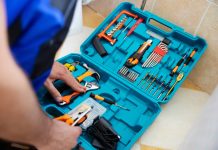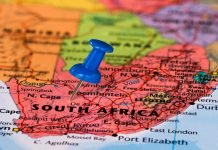No matter the size of the market, cultural differences must be respected, explains Pascal Gaming’s Artur Manasaryan.
Chatting to SlotBeats from SBC Summit Rio, the supplier’s Head of Business Development reflects on the keys to successful localisation, a term that is one of the biggest and perhaps most discussed buzzwords in iGaming
He says: “We always start from zero wherever we go. Even if we are entering a new country in a similar region to another, we start from zero. There are so many small, important differences that we have to understand then take into consideration before we even start creating something bespoke for a country.”
“We need to keep showing respect, keep being humble, and understand that no matter how good you are in different regions, every place is different so you must show consideration to even the smallest vectors.”
Like many in the industry, Pascal Gaming has had its eyes firmly fixed on Brazil for more than two years, ahead of the launch of the country’s regulated online gaming and sports betting market at the beginning of the year.
While the firm acknowledged the demand for Brazil, it also knew that it could not simply stick a Portuguese label on its slots.
“It’s critical to be humble enough to understand that we need to learn a lot before entering this market,” explains Manasaryan. “It’s so important just purely to learn, to understand, to get more knowledge about what the market needs.”
“That’s what we have done for two years. We have been to every expo, not to do deals but to learn the needs of the market and get an understanding of it. Hopefully, we did just that.”
This research has been reflected in its content, which is tailored to the Brazilian market. The firm exhibited its new Bozo Brazileiro game in Rio, based on traditional street dice games.
Brazil’s federal framework for online gaming has certainly got its detractors, but after being over five years in the making, suppliers and operators are not willing to let go of their dream opportunity in Latin America.
For Pascal Gaming and Manasaryan, the experience gathered in other complex regulatory frameworks such as the UK or Sweden, set them up for success in Brazil.
He elaborates: “I can imagine that for a new game provider it must be a nightmare and a hassle to get a Brazilian licence because it is so strict. But for us, it was much easier as we have other tough licences. We listen to the regulations here in Brazil and we comply with them.
“We have the privilege of being licensed in other jurisdictions so it’s easier to hear the strict requests of the Brazilian regulators. Otherwise, I could imagine it being really hard.”
Being part of the wider BetConstruct group is also a key advantage for ensuring regulatory compliance, says the Head of Business Development.
He adds that being under the umbrella of BetConstruct means it has access to expertise and resources that others don’t, and that this puts it in good stead to enter new markets and remain compliant.
While Brazil is top of mind, Pascal also has operations across Latin America in Colombia, Peru, Mexico and the rest of the world. Not only is it its dedication to R&D that sets it apart, claims Artur, but its ability to deliver content is also a key driver of its wider regional success.
Asked about the firm’s 2025 plans, he concludes: “Our long term purpose which sets us apart from the crowd is that we offer six verticals of games with one signal integration and one single contract. This is not usual. Most operators would typically have a slots provider then a crash games provider then a virtual sports provider. We do it all, and we keep them optimised for regulatory frameworks. We’ll keep doing this in 2025.”

















